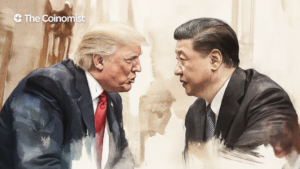Westpac CEO Issues Apology After Crypto Transfer Controversy

A crypto transfer gone wrong ends in public backpedaling from the CEO of one of Australia’s top banks.
A blocked Bitcoin transfer just earned Westpac’s CEO a PR headache. Anthony Miller had to personally apologize to a customer, Tim, after the bank froze his $30,000 transaction to CoinSpot.
Tim had wired $50,000 into his account, planning to invest in crypto. But as soon as he tried moving funds to the exchange, Westpac flagged it. A bank employee stopped the transaction citing “security,” and then risk control got involved. Tim says the whole thing felt pushy and intrusive.
I am genuinely trying my best to help you out as best as possible. But I feel as though, so far, you are trying to tiptoe around the answers and simply tell me what you think I want to hear to have this pushed through as soon as possible,
the employee remarked.
In the call recording aired on radio, you can hear the employee pushing back against Tim’s straight-to-the-point explanation. A few days later, CEO Anthony Miller admitted they may have gone overboard and said the communications team would be retrained—though oddly, he had previously complimented the employee’s approach.
Tim says the freeze led to a missed financial opportunity.
Сheck this out: Australia Launches Crypto Regulation Framework for Sector Clarity
Australia's Crackdown on Crypto: New Rules and Debanking Issues
While the government rolls out fresh regulations for digital assets, it's also addressing debanking—when banks suddenly cut off services or close accounts without a heads-up. Banks often cite fraud prevention or money laundering concerns, or shifts in financial profiles, but customers are understandably upset.
We can certainly improve our delivery on that one and there's no doubt that we'll look at more coaching. We also need to be more sensitive to customers, it's their money, we completely understand,
Miller chimed in.
With regulatory momentum building, Australia has introduced fresh rules for the crypto sector. Prime Minister Anthony Albanese signed off on a framework requiring significant cryptocurrency exchanges to obtain operational licenses. The new regime has already attracted WhiteBIT—a European exchange making its debut down under.
The goal? More transparency and better consumer safeguards—especially now, when banks are routinely freezing suspicious crypto-related payments.
Read on: Michael Barr Details the Fed’s Position Amid Crypto Debanking
As Australia's crypto policy evolves, so does its tech ecosystem. Melbourne startup ShareRing has drawn fresh attention after securing $4 million in public funding. The firm is pioneering a digital identity solution with user-owned data at its core. It’s now participating in a government-backed pilot to test blockchain tools for real-time age verification.
Right now, Australia is in the middle of a digital shake-up. Banks, regulators, and tech innovators are all working to create fair, future-ready rules. As this new landscape takes shape, crypto exchanges are hustling to scale up and win over global audiences.
The content on The Coinomist is for informational purposes only and should not be interpreted as financial advice. While we strive to provide accurate and up-to-date information, we do not guarantee the accuracy, completeness, or reliability of any content. Neither we accept liability for any errors or omissions in the information provided or for any financial losses incurred as a result of relying on this information. Actions based on this content are at your own risk. Always do your own research and consult a professional. See our Terms, Privacy Policy, and Disclaimers for more details.

























